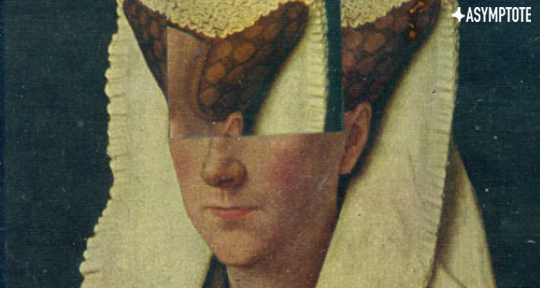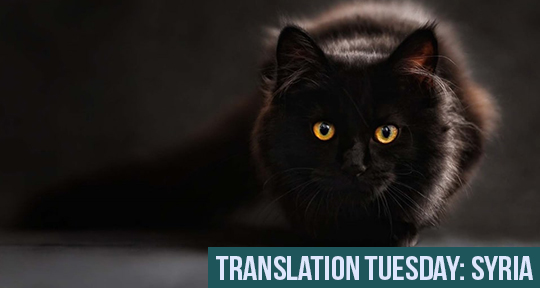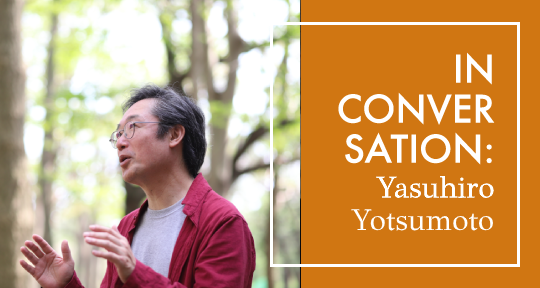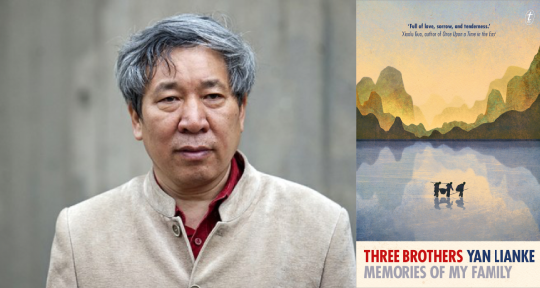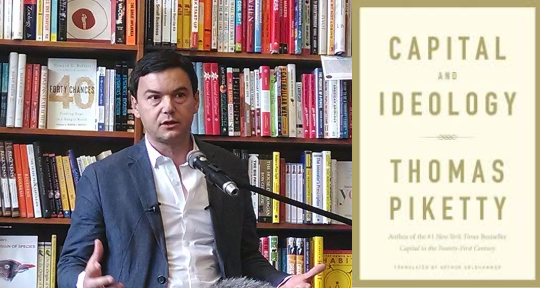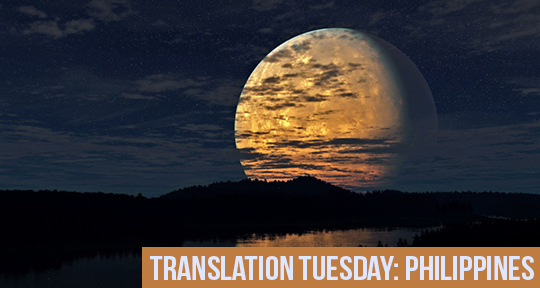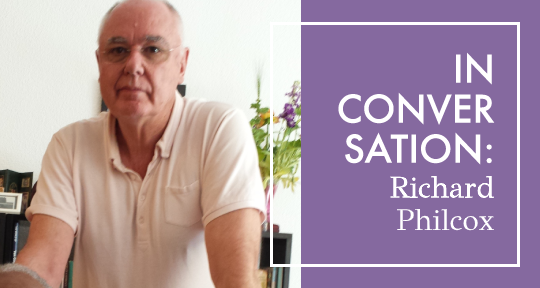As the daily grim statistics recorded a growing global death toll from COVID-19, one small country in Central Europe prided itself on having one of the lowest, if not the lowest, mortality rates from the disease. Slovakia has attributed its success in fighting the pandemic to introducing a strict lockdown soon after the first cases were detected. At the time when the UK government was advising people to merely avoid going to pubs, all of Slovakia’s bars, cafés, and restaurants were ordered to close or switch to take-out service. However, this highly beneficial public health measure had at least one unintended consequence: it deprived an acclaimed Slovak writer (and past Asymptote contributor) of his favourite places to write. Balla, the author of a dozen collections of short stories and two short novels has often been compared to Franz Kafka, though Asymptote assistant editor Andreea Scridon has argued that he “might more reasonably be called a nihilistic Etgar Keret, given the thoroughly ironic, often absurdly amusing, take on contemporary life that characterises his work.” While this is certainly an apt definition of his writing, another reason why Kafka’s name keeps cropping up is the fact that Balla has never given up his day job in the audit department of the council office in his home town of Nové Zámky where he continues to live, drawing inspiration from the humdrum life of the people around him as well as his own. What makes the absurd stories of petty bureaucrats, blinkered nationalists, frustrated wives, neglectful husbands, and bullying fathers, as well as dishevelled publishers and burned-out writers so true to life is Balla’s uncanny ability to capture their voices, overheard in cafés and pubs. Balla’s translator and Asymptote’s Editor-at-Large for Slovakia, Julia Sherwood, wondered how he coped with being cut off from his source of inspiration and asked him to describe his life in the time of COVID-19 for this column. Balla obliged in his characteristic tongue-in-cheek style, blending fact and fiction. (N.B. since the time of writing, cafés in Slovakia have reopened.)
On the pandemic
by Balla
1.
Since the start of the pandemic I’ve been to the woods twice. I wanted to take a solitary walk among the trees. With my face mask on. But there were people everywhere. Our woods are small. And everyone has the same goal, a solitary walk among the trees. So here we all are, walking around, except we’re wearing face masks and we’re not solitary. After a while I start suffocating under my mask. I venture deeper into the woods. It’s muddy and smelly. I’m approaching the sewer where wastewater from the city pipes is discharged. This is where I spent my childhood. This kind of place is a source of amazement for a child. My mother warned me to stay away from the sewage-filled drain. Here I’m finally alone. I take a bottle of whisky out of my bag, take a drink and realise again that it’s not alcohol that I’ve been missing, it’s a café, complete with people, conversations, bad music, the tinkling of spoons, glasses, cups, and saucers.
I put the bottle away in disgust.
Obviously, only after I’ve emptied it: whisky is whisky after all.
But what about the trees?
The bushes?
The sewage?
I’m not interested in any of them.
I’ve seen these trees, these bushes and this sewage at least a thousand times before. The woods at the edge of town are small. They seem to be getting smaller and smaller. This is an objective fact: the woods are full of cottages, rubbish dumps, paths, clearings; there’s even a tiny pseudo-zoo, where I love the boar because of its positive relationship to the mud. But what I really love is the din of streets, cars, motorbikes, and pubs, roaring rock, blues, ferocious free jazz. The holiday destination of my dreams is a smog-bound city further west. Staying on the first floor of a boarding house in the city centre, on a noisy boulevard and with a pub on the ground floor that has nonstop live music. That’s where I would like to relax, write, reflect; these are the ideal conditions for me.
The woods are an alien, dangerous place.
Birds gawp at you from the branches and don’t understand you.
I’m standing under a tree watching a bumblebee as it climbs up its trunk, wondering when it will decide to climb on top of me, and thinking about ordinary people. Things are not that difficult for ordinary people at the moment, they’ve always lived like this. From work they head straight back to their flats or houses with the same flatmates, husbands, wives, children, do the same house chores, followed by TV, then go to sleep in the same bed with the same occupants. They live a life in permanent quarantine and state of emergency. Provided, of course, they haven’t lost their job because of the pandemic. I wouldn’t wish that on anyone. Some say that everything will have to change once the pandemic is over, we shouldn’t go back to the old world as it used to be.
I see their point.
2.
On Monday morning the porter didn’t let me into my office building.
I wasn’t wearing a face mask.
Who would have thought that one day I’d end up having to force my way in there?
Actually, I don’t mind face masks. All my life I’ve felt self-conscious about my face, my huge nose, my chaotically uneven teeth: now there’s finally a chance to cover up this handicap. I have plenty of those. For people like me the best thing would be for the state to order all men to wear male burkas. But the state has failed to provide the citizens with face masks, just told us to wear them, so it’s unlikely we would ever be issued with burkas. My girlfriend has sewn some face masks for me, but she’s stuck in another town and is justifiably scared of travelling so she’s sent them by post.
But you’re not allowed to go to the post office without a face mask.
I’m stuck right in the middle of an absurd drama.
This is my preferred kind of literature. It’s the only kind that still manages to capture some of what’s going on here. READ MORE…



